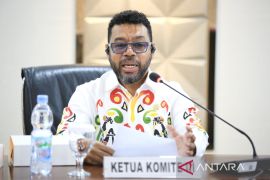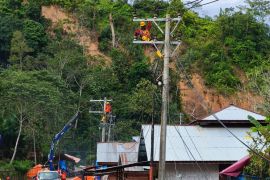"This is one issue we have to face, the issue of the stigma (attached to leprosy)," the Director General of Disease Control and Prevention of the ministry, HM Subuh, said here on Friday.
In many cases, leprosy patients were forced to stay away from public activities and people tried to avoid them. Such behavior prompts those suffering from leprosy to conceal their health condition.
Subuh noted that the situation has made it difficult for the authority to prevent further transmission of the disease because patients avoid medical treatment.
Leprosy, if not treated properly, can cause permanent disability and even death among those contracted with the bacterium. In addition, it can spread further among families and close relatives.
He pointed out that the public stigma attached to leprosy was due to the lack of information about the disease.
Leprosy is a chronic, infectious disease caused by the bacillus, Mycobacterium leprae. It mostly affects the skin and peripheral nerves.
Currently, the only safeguard is a vaccine with BCG (Bacillus Calmette-Guerin), a single dose of which gives 50 percent or higher protection against the disease.
According to Subuh, Sumatra and most regions in Java have been declared as being free from the disease. However, leprosy is yet to be eliminated from some regions in eastern Indonesia, including Papua, Maluku, Sulawesi and North Kalimantan.
Subuh assured that the government would continue its efforts to eliminate leprosy across the country by 2019, and reach out to all those people affected by the disease.(*)
Editor: Heru Purwanto
Copyright © ANTARA 2017










